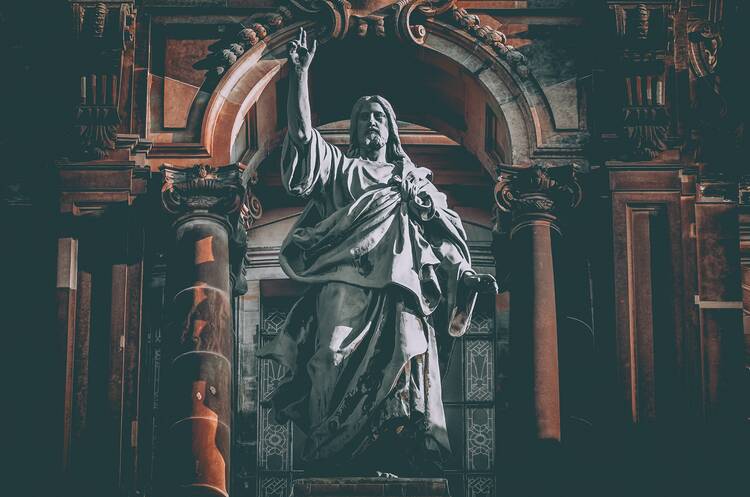A Reflection for the Memorial of St. Francis of Assisi
Find today’s readings here.
“Let the dead bury their dead.” A phrase that has come to me at various times throughout my life, and it has always been an invitation to peace and freedom and clarity. It’s also one of the meanest things Jesus ever said. This is because Jesus is speaking to people who are alive. To the dead, he has other things to say.
The context, in today’s Gospel reading, is that a crowd of people were telling Jesus that they were willing to follow him wherever he went.
And to another he said, “Follow me.”
But he replied, “Lord, let me go first and bury my father.”
But he answered him, “Let the dead bury their dead.
But you, go and proclaim the Kingdom of God.”
Whenever Jesus says something that comes across as unreasonable, nasty and a little bit insane, which this does, I ask myself: What do we know for sure about Jesus? The one thing we know is that he knows us, which means that he knew that particular guy he was talking to. I always assume that there is something we don’t know. This probably wasn’t someone who actually wanted to run off quickly, piously take care of his dead father’s body, and then rush right back and wholeheartedly give his life over to the Lord. We can speculate about whether he was lying, or exaggerating or making excuses, but it seems to me that if this is what Jesus said to him, it is what he needed to hear. The comment wasn’t actually mean; it was meant to free him from whatever he was proposing as an obstacle to eternal life.
Whenever Jesus says something that comes across as unreasonable, nasty and a little bit insane, which this does, I ask myself: What do we know for sure about Jesus?
We also know that Jesus knew his words were being heard and remembered and recorded, and that they would be contemplated by millions of people in ages to come. He knew that my father, for instance, would be standing in the library in the evening, wrestling in his mind with the final obstacles he faced before converting to Christianity.
My mother and two of my sisters had already been baptized a full year before, but my father was still struggling. Struggling, really, with the dead—with his ancestors, who hated what they understood of Christianity, because they had been persecuted and hounded out of their homeland by people calling themselves Christians. Even when you know better, it’s hard to get over the feeling that going down into those waters of baptism would be spitting in the face of your parents, your grandparents, and about six million others.
He looked out the window at the cemetery next door, and the words came to him: “Let the dead bury their dead. Come and follow me.”
So he did—not happily! The story goes that he stormed home in a rage and demanded, “Okay, WHO’S BEEN PRAYING FOR ME?” He then angrily got baptized a few months later, and then grouchily remained a Catholic until his dying day.
After he died, I had a little waking dream just before I fell asleep. I saw my dead father alive, climbing upward, his face lit up, elated. He was clearly following something really good. I imagine he was going to find out what it was that Jesus has to say to the dead.








